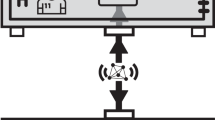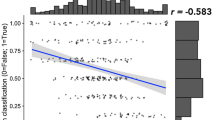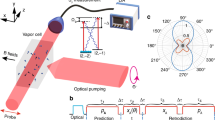Abstract
IN his Royal Institution discourse, published in a Supplement to NATURE of January 1, Prof. H. Dingle has made an attempt to show that, if we regard the recent trend of physics (expressed by the principle: “nothing which is logically or physically unobservable is significant”) as legitimate, we are idealists. This is no new conclusion and the very thing to which M. Maritain1 and R.J. Dingle2 object.
This is a preview of subscription content, access via your institution
Access options
Subscribe to this journal
Receive 51 print issues and online access
$199.00 per year
only $3.90 per issue
Buy this article
- Purchase on Springer Link
- Instant access to full article PDF
Prices may be subject to local taxes which are calculated during checkout
Similar content being viewed by others
References
"Reflexions sur l'Intelligence", pp. 202–261.
"The Faith and Modern Science", pp. 40–56.
Other men of science, like Prof. Max Planck, who have paid a good deal of attention to the philosophical side of such questions, are fully aware of having such evidence. See "Positivismus und Reale Aussenwelt" (Leipzig 1931) and "Religion und Naturwissenschaft" (Leipzig, 1937).
Author information
Authors and Affiliations
Rights and permissions
About this article
Cite this article
VAN MIERLO, S. Science and the Unobservable. Nature 141, 555–556 (1938). https://doi.org/10.1038/141555b0
Issue Date:
DOI: https://doi.org/10.1038/141555b0
Comments
By submitting a comment you agree to abide by our Terms and Community Guidelines. If you find something abusive or that does not comply with our terms or guidelines please flag it as inappropriate.



